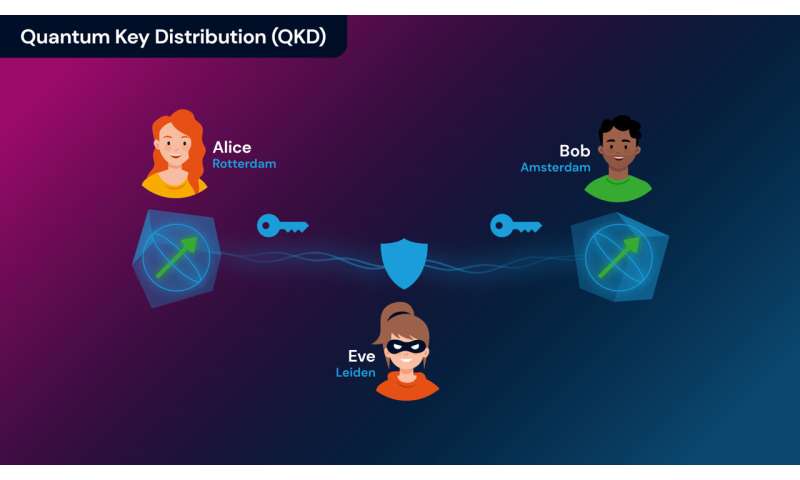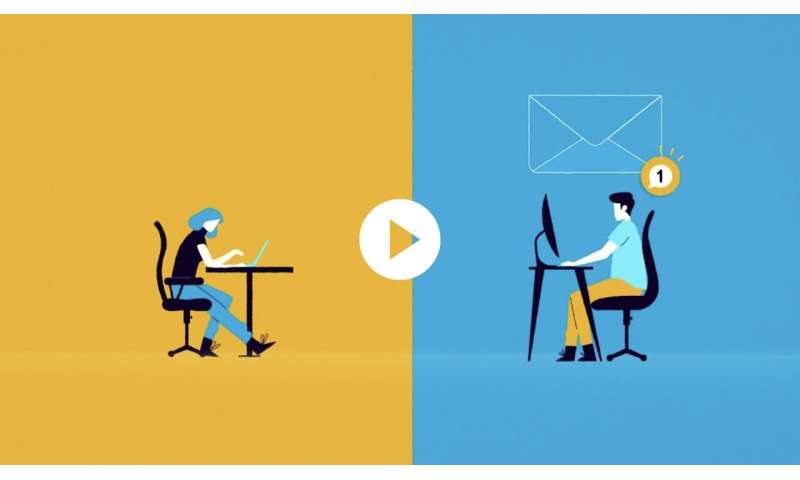New platform opens quantum networking to everyone

Starting today, everyone can freely access Quantum Network Explorer (QNE) to experiment with quantum networks. QNE is developed by QuTech—a collaboration between Delft University of Technology and TNO—and specifically aimed at researchers, students, software developers and future users of quantum network applications. QuTech believes in the power of community and wants to contribute by enabling users from different backgrounds to explore and experience the possibilities of quantum networks.
Imagine it's the 1950s and you get the chance to play around with the internet in its infancy. This was the era when web applications (like streaming), the collection of web pages (the www), or even a common way to connect (like IP addresses) were decades away from being imagined. This is where the quantum internet is now. But there's a big difference: it's not a closed governmental project, but an open experiment, accessible for everyone with a modern browser.
The promise of quantum networks
Just like in the earliest era of the common internet, the future of quantum networks is not set in stone. Already there are some novel applications that will fundamentally enhance internet technology. One state of the art application, for example, is Quantum Key Distribution for untappable communication. The question is: what is the quantum networking game changer and who will build it?
At QuTech, we believe that the most exciting applications of quantum networking will likely not be discovered by academics. We are now releasing QNE in order to contribute to building a world-wide quantum internet community. We allowing you to explore pre-built quantum network applications, and even program your own imagination to share with the world.
=== Want to learn more about the quantum internet? Watch the animation here or on YouTube. ===
Graphical tool and application development kit
We have built an easy-to-use graphical interface that allows you to explore pre-built applications without any programming.

To enable the community of researchers, developers, and future users, a high-level application development kit (ADK) is also made available. This ADK allows you to program new protocols and applications for real quantum networks on your own. New applications can be added to the QNE graphical user interface so others will be able to use these as well without the need to learn how to program.
Educational tools
Another major goal of the QNE project is to provide educational tools. The knowledge base will be expanded and already contains explainations about the basics of quantum technology and quantum networks specifically. Educators can readily design exercises and whole courses around the experiments section of QNE, because the whole website is open, free, and user friendly. An account is only required to save previous experiments.
From simulations to real hardware
Right now, your programs will run on our simulation platforms NetSquid or SimulaQron. However we are working hard to make some of our quantum hardware available for you online. Earlier this year, we already demonstrated the world's first 3-node quantum processor network.
More information
The QNE website was introduced to the world during a launch event. A recording of the event will be made available on the QuTech YouTube channel. For more information on the development of QNE follow the QuTech social pages (Twitter, LinkedIn, Facebook).
We love to learn about your quantum network programs, so please share them with us and the world! Registration for the QNE website is free and open to the public now (but not necessary to start experimenting).
More information:
The base of this story is the front end of a website (www.quantum-network.com) and more importantly, it's backend. I was doubting to include a reference to cited research, but it's build on a whole lot. More info on that can be found here: www.quantum-network.com/about-qne/
Provided by QuTech